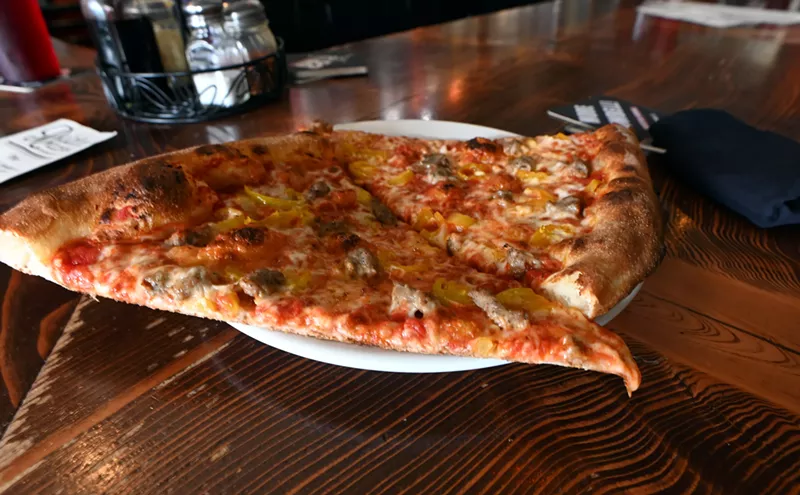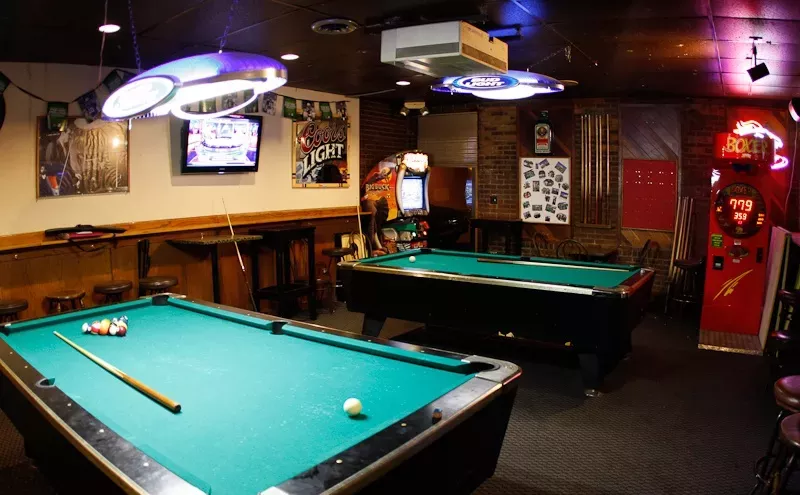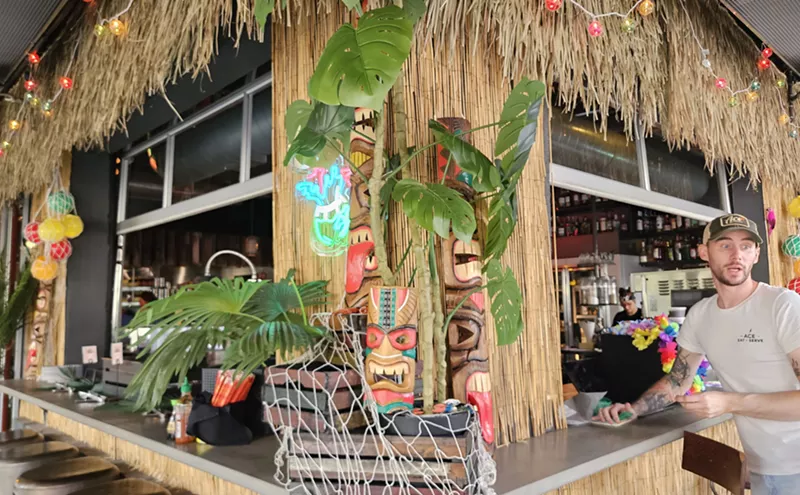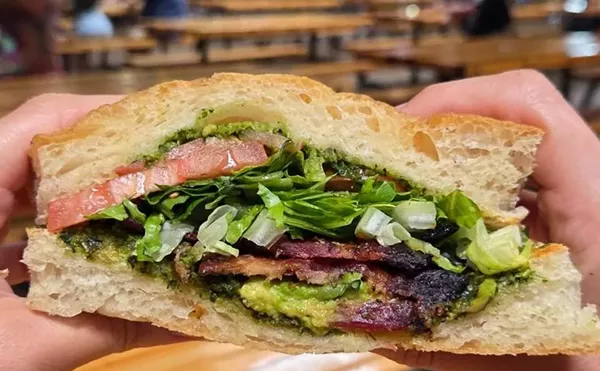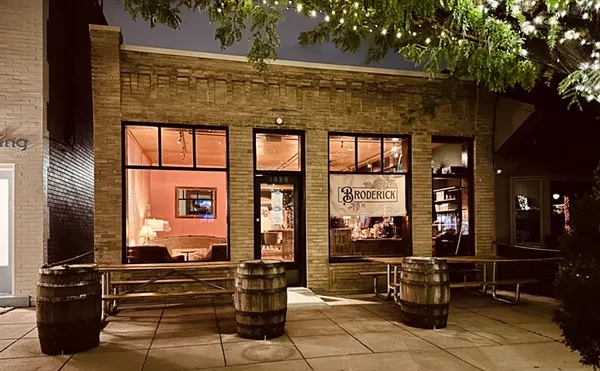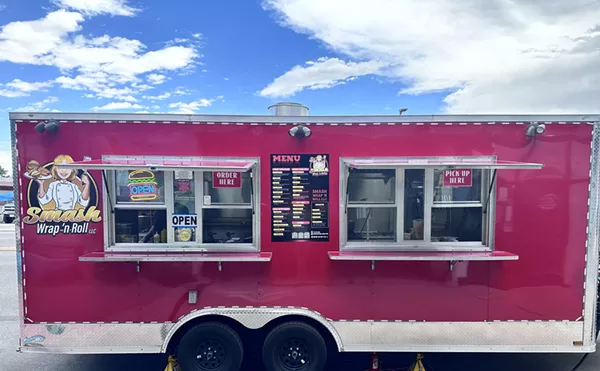I, of course, was the jerk on the panel who would gladly eat a plate of bacon that he found on the street, but all this talking about vegetarianism and cruelty-free animal practices and whether or not broccoli can scream got me thinking: Where can a person eat in this town and really, truly feel as though he's making a morally correct and ethically positive (or at least neutral) choice?
Honest to jesus, I don't know the answer to this one -- mostly because, until very recently, I just didn't care. I mean, I like to do good as much as the next guy. And like the next guy, I mostly like to do good provided that doing it doesn't take me too far out of my way or inconvenience me too terribly. I am, at heart, a lazy moralist. But when it comes to food? Well, now we're getting a bit more personal. Food is both my life and my business. It is the one thing I know better than anything else in the world.
But when it comes to making good choices -- eating well and eating decently, in a way that's not overtly cruel or stupid or wasteful and isn't deliberately damaging to the earth -- I am just as lost as everyone else because, as I have learned from talking to many people and reading many books and listening to many dire warnings of economic, social, environmental and spiritual collapse, there really is no one good answer. Can I eat all natural, grass-fed beef? Sure, provided I don't care that the phrase "all natural" has been rendered legally and semantically meaningless by the maneuverings of politicians and lawyers, or that the grass the grass-fed cows are eating has been fertilized in a way that's destroying the earth. Well, then, what about humanely-raised pigs? Absolutely, so long as I can square it with my delicate soul that no matter how "humanely" they lived, the pigs probably spent their lives in confinement, were fed inappropriate diets and, ultimately, the little bacon-factories were likely dispatched on a killing floor with little or no concern for their welfare at the ends of their lives.
So since I'm living in an Aurora townhouse with no room to raise my own pigs, cattle, fish and vegetables, am too busy/tired/lazy/irresponsible to find some land somewhere and go all back-to-nature as a subsistence farmer, and am not about to give up the joys and pleasures of pork belly, pho, tacos or sushi and go vegan this very moment, I'm essentially fucked. Every right answer, every right move, leads to another wrong one. Even vegetarianism comes complete with a minefield of ethical issues -- from localism and carbon footprints to GMO and food miles. Also, there's that whole NOT EATING MEAT thing, which is just right the fuck out.
During our panel, Kummer (who was moderating), asked a very simple question: What can a normal person do to try and eat a less damaging diet? And after 45 minutes of listening to facts and figures and horrible stories about death and slaughter, I had no answer. Which is why he called on me first.
I said the first thing that came to mind. "Talk to your chefs," I said. "Ask them about their food." Because, really? The only people who are going to know more about where their product is coming from than a bunch of nosy food writers are the chefs who, daily, have to order the food, take delivery of the food, prep the food and then serve it. They are the ones who are the most invested in the top end of the food chain. And while nine out of ten chefs are probably never going to speak to anyone who calls up asking about the history of the pork chop special on the dinner menu, that tenth one? The one who actually takes the call or has an answer?
That's the restaurant you're going to want to go to. Because that's a guy who cares about what he's serving to his customers as much as his more moralistic and thoughtful customers care about what they're putting in their mouths.
So I ask again, where are these places in Denver? Don't automatically say WaterCourse. Don't use this as an excuse to start spouting off about your vegetarian politics. I want to know about your experiences at restaurants where the chef and/or owner have gone out of their way to source product as well as they can -- to avoid the worst sins of the modern food system.
And I know, none of us is perfect. There isn't a restaurant out there that can possibly operate in a completely ethically sound fashion while also operating in a fiscally sound one; not a single person who can claim, with a straight face, that they are eating in a way that truly does no harm. But then, I'm not asking for perfection. Because there is no one-size-fits-all solution to this issue, I have come to feel that the best way to do good is simply to think more about your food -- where it comes from and how it got to your plate. If thinking leads to action? Fantastic. You want to stop eating certain things, eat more of other things? Good for you. But the thinking part -- that's what's important right now, at this moment.
So think for a minute, and then comment. Where can we go to eat a meal that's not just good, but good -- that doesn't just feed us, but does so without causing an undue amount of harm along the way? And while you're thinking about your response, make a note to pick up the books written by those folks listed (and linked) above. All of them are excellent resources for those of you who are beginning to think just a little bit more about what we eat, where it comes from and what it all means to us as humans.
As for me, I'll be down the street drinking beer and eating tacos, because for all this talk about animal rights and ecological consequences, there's still a part of me -- a big part of me -- that has all the food-morality of a blood-mad shark, that refuses to entertain notions of animal ethics when the dinner rush is coming in, that just looks at a cow and thinks, "Hmm, dinner..."



